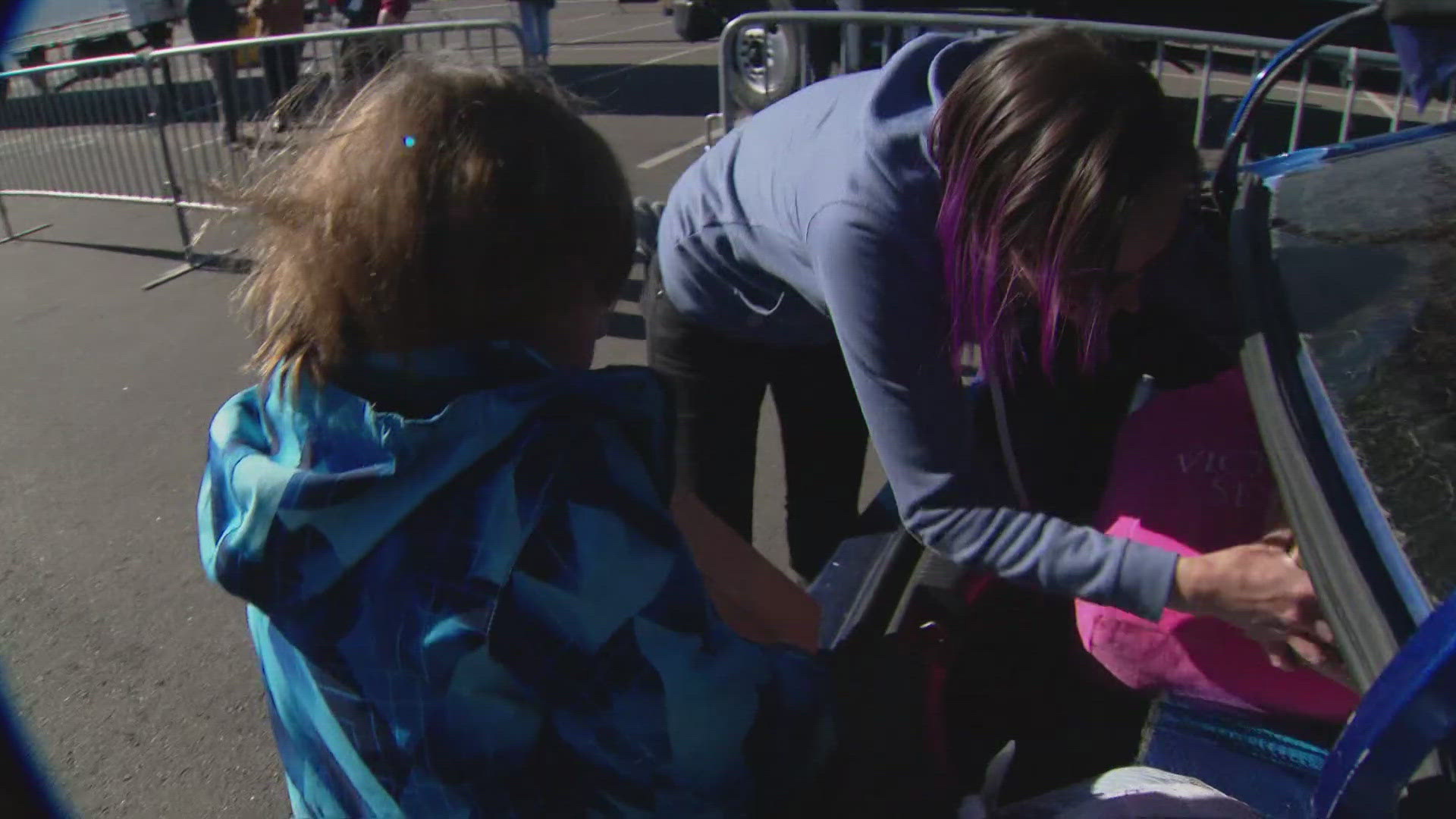KUSA — A federal judge will decide whether Rep. Doug Lamborn (R-Colorado Springs) should be on the June primary ballot despite the fact two of the men who gathered his petition signatures aren’t Colorado residents.
"We gave it our best shot," Lamborn said. "We hope and pray that I'm restored to the ballot."
The six-term Republican lawmaker sat at the plaintiff’s table in a federal courthouse in downtown Denver Monday morning as attorneys fought over his political future – and whether the law keeping him off the ballot is unconstitutional. Lamborn did not take the witness stand during the hearing, nor did anyone on his side, even though he has the burden of proof in this case.
There was only one witness from the Colorado Secretary of State’s Office, which argued that Lamborn waited too long to challenge a law that has been in place since 1980.
“Courts should do their best to not go in and change the rules immediately before an election,” the Secretary of State’s Office argued.
The judge asked Lamborn’s attorney why he was taking action now if he had known about the residency requirement since he first ran for office in 2006. Ryan Call, the attorney representing Lamborn, said not allowing the congressman to compete in the primary would disrupt the election process.
“Leaving Congressman Lamborn off the ballot would result in irreparable harm,” Call said.
The Secretary of State’s attorneys countered that Lamborn could have brought up the residency requirement earlier in the court process, and that the judge’s decision will have a bigger impact than just on one congressional race.
One topic that was referenced multiple times was a 2008 decision in the 10th Circuit Court of Appeals that struck down an Oklahoma law with an in-state residency requirement for petition circulators.
"It's each individual signature that really matters, whether that's a proper and lawful signature, that should be a lot more important than who's holding the clipboard," Lamborn said. "Who's holding the clipboard, yeah that's interesting, but it shouldn't count to the same extent of the person who's actually signing the petition."
But it does according to state law 1-4-905(1):
Petition circulators must be state residents, U.S. citizens, at least 18 years old, and affiliated with the party at the time they circulate a petition section.
This isn’t Lamborn’s only last-ditch effort to make the ballot. He has also filed a motion in state court to correct other signatures that were deemed invalid due to minor errors.
These were not collected by the out-of-state petitioner, meaning that the decision in this case won’t be dependent on what happens in federal court.
Lamborn’s argument against the residency requirement comes in wake of a ruling from the State Supreme Court, which kept him off the ballot because of it.
Candidates can either make the ballot through the petition process or at the state assembly. Lamborn chose the former, and turned in 1,269 signatures to the Secretary of State’s Office. He needed 1,000.
This led five voters to sue claiming that two of his petition collectors were from out of state.
While a district court ruled that one of those collectors intended to become a resident – making his signatures valid – this was later overturned by the State Supreme Court. Between both the state supreme court and district court rulings, Lamborn lost 327 signatures.
That dropped him below the 1,000 he needed to get on the ballot.
The state supreme court ruling, however, did not address the constitutionality of the residency requirement to begin with.
"We did our due diligence and the company we contracted with did their due diligence," Lamborn said.
Colorado State Treasurer Walker Stapleton hired the same company as Lamborn to collect signatures for his gubernatorial campaign, and attempted to intervene on the state lawsuit on his behalf in order to ensure that his own signatures would be ruled valid.
Stapleton, however, ultimately bowed out of the lawsuit and garnered enough support at the state assembly to earn a ballot spot.



